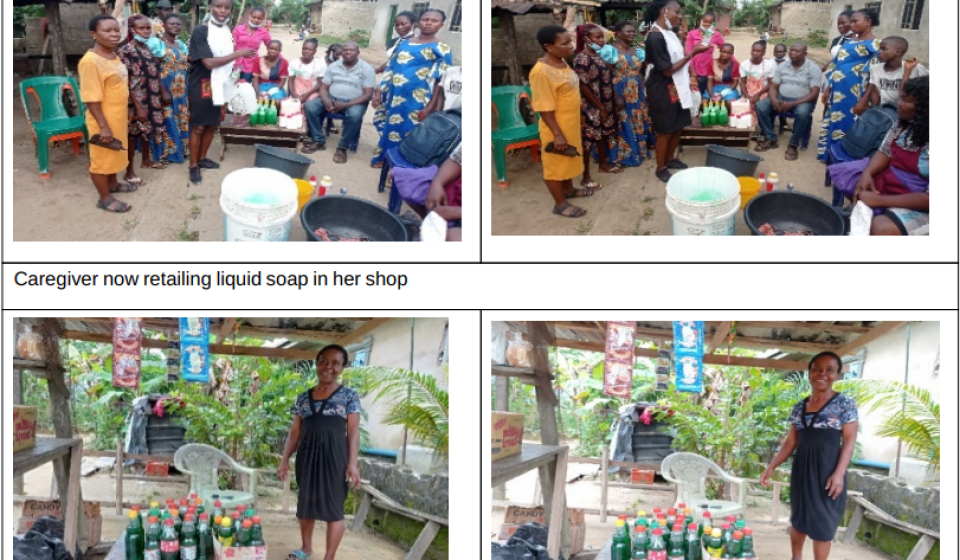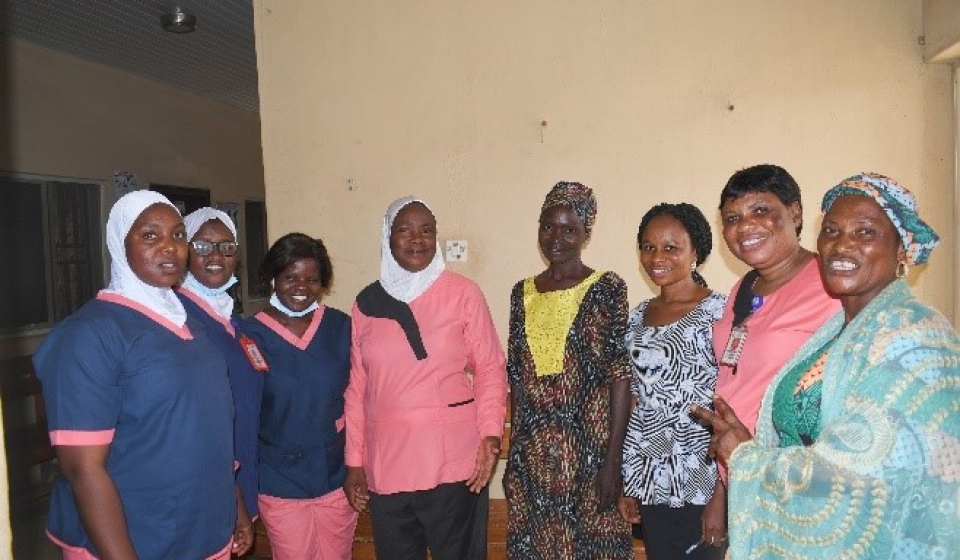The objective of the study is to evaluate the effectiveness of iSTAR, an integrated community and clinic based intervention that is designed to test, link, engage and sustain HIV-infected women in care. Using a cluster randomized comparative effectiveness trial of iSTAR versus a clinic-based approach (Control Group or CG), the study will assess linkage, engagement, retention and viral suppression among 400 HIV-infected women. Based on the EPIS framework, it will use social network intervention methods to facilitate implementation and also assess implementation leadership and context. Fifty churches in Benue state Nigeria will be randomly assigned (1:1) to iSTAR or CG. The iSTAR intervention provides: confidential, onsite integrated laboratory testing during baby showers; a network of church-based health advisors; clinic based teams trained in motivational interviewing; quality improvement skills to engage and support HIV-infected women; and integrated case management to reduce loss to follow-up. Primary outcomes are difference in linkage and engagement rates between iSTAR and CG. Secondary outcomes are difference in retention and viral suppression rate. The findings will yield data that will be used to facilitate program scale-up, and sustainability planning for transition to the local community.
The iSTAR study is designed as a multiple principal investigator (MPI) plan. The study is being implemented through the collaboration of University of Nevada, Las Vegas (UNLV), University of Nigeria Nsukka (UNN), Sunrise Foundation, and Catholic Caritas Foundation of Nigeria (CCFN) and Centre for Clinical Care & Clinical Research Nigeria (CCCRN). Dr. Echezona Ezeanolue from UNLV and Dr. Chima Onoka from UNN serve as Principal investigator (PI) on this study.
The UNLV team consists of the PI and his assistants (Dr. Rohan Jadhav, Tami Bruno, Aaron Hunt, Dina Patel, and Semiu Gbadamosi). The UNLV team prepared and submitted the proposal for this study to the funding agency in collaboration with implementing partners in Nigeria. The team oversees all aspects of study including site selection, randomization of churches, baby shower screenings, referral of HIV-infected pregnant women to healthcare facilities, and data collection. They also prepared guidelines for operationalization of this study on the ground.
The UNN team consist of the PI, a program manager, a compliance officer and a research manager. The UNN team supervise the onsite implementation of the study. The team receives participant data, research activities, and outcome measures from the CCFN team and shares it with UNLV. The CCCFN team includes a research manager, an existing state-level study coordinator, 7 research assistants (1 for each LGA), a lab coordinator, and 18 clinic-based facilitators (CBFs). The state-level coordinator oversees the study, and the 7 research assistants (RAs) supervise between 12-18 church-based health advisors (CHAs) in each LGA. Teams of church-based health advisors from selected churches (CHTs) organize baby showers. Baby showers include screening for HIV, hepatitis B, and sickle cell disease. Church-based health advisers (CHAs) draw blood and transport specimens to the CCFN-supported laboratories located at health facilities that conduct diagnostic and clinical activities for the study. Results of the clinical activities and testing will be communicated through the state-level study coordinator back to the research assistants of each LGA.
To effectively carry out their duties and functions effectively the RAs, CHAs and CBFs receive ongoing training and mentorship on retention strategies from a team lead by CCCRN. A general training was done for the research team at the beginning of the project. Onsite training and direct mentorship will continuously by carried out by the CCCRN lead team all throughout the study.


